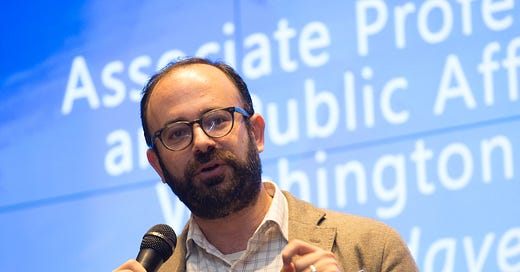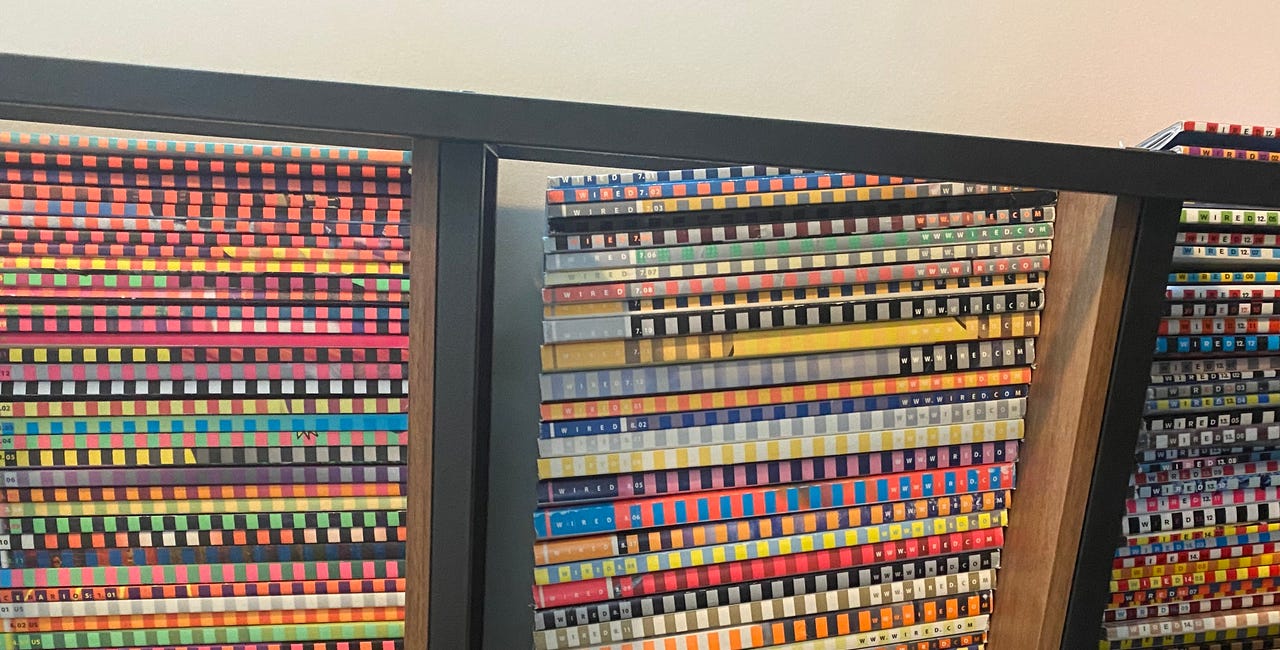Well. 2024 proved to be an… eventful year.
But in the spirit of new beginnings, let’s set that aside for the moment. Grappling with what we have lost, how we respond, and (ultimately) how we rebuild will be a project for 2025 and beyond. Today, I’d just like to pause and reflect on the state of this newsletter.
First, the highlights:
I’ve been writing this substack for about two and a half years now. I set a personal goal in the summer of 2022 to start writing about one post a week. This will be the 155th entry, and the 55th of the year.
Readership has grown from around 6,300 last year to just over 9,000 today. (and hey, thanks.)
I expect the cadence of weekly essays will probably dip during the first half of 2025. I’ll be spending the winter and early spring finishing the book manuscript. So I’ll mostly be using this blog as an outlet to shout about current events, while the bulk of my time is spent trying to turn out the best possible version of the book.
I might write the occasional book review on here as well. Book reviews have turned out to be surprisingly enjoyable for me to write. We’ll see.
Here are the top five posts from The Future, Now, and Then in 2024. There’s a nice mix of technology and political commentary in this list. It turned out to be a good representation of what I had hoped to do with this publication:
Number 5: Bluesky as the Ship of Theseus
The one nice surprise of 2024 was the emergence of Bluesky as a replacement for Twitter, while X collapses upon itself like a dying star. A racist, enshittified dying star.
Stick around for the kicker:
The ship of Theseus has been rebuilt. The company that Elon bought wasn’t so irreplaceable after all. Seventeen years of network effects should, in theory, have been an insurmountable advantage. But network effects and habitual user behavior have proven no match for the strongest repulsive forces in the known universe:
Elon Musk’s personality.
Number 4: The only thing university administrators had to do was NOTHING.
I was on sabbatical during spring semester 2024, which meant I wasn’t on campus for the encampments. But I needed to get a few things off my chest, about strategic communication and the sheer, predictable mediocracy of so many university administrations.
The only thing university administrators had to do was NOTHING.
I am not on campus this semester. I’m on sabbatical, sitting in coffeehouses, writing blog posts and a book.
Number 3: Paul Graham and the Cult of the Founder
Pieces of this essay had been kicking around in my drafts folder for half a year. It’s equal parts rant-about-Paul-Graham’s-whole-deal and reflection on Aaron Swartz, Sam Altman, and what Silicon Valley culture has lost along the way.
Number 2: What the Future Looks Like from Here
Written the morning after the election, while still raw and still processing.
I’m proud of the last line in the piece. It captures the mood that I’d like to take into 2025 and beyond:
“This is an ending, but not the end. We can, one day, build something better.”
What the future looks like from here.
(NOTE: I’m still processing things. Writing is how I process.)
Number 1: What Elon Musk’s favorite game tells us about him
I played Elon Musk’s favorite game, Polytopia. It was… fine? Nothing special, honestly. But the contrast between what the game is and how Elon talks about it is pretty revealing.
I find it pretty funny that this was the top post of the year. I wrote it on a lark, and almost didn’t publish it because it felt a bit too random.
(Lesson learned: people enjoy Elon-Musk hate-reads.)
What Elon Musk's favorite game tells us about him
[NOTE: this post is sort of an “…and another thing!” riff on my original review of the Walter Isaacson book. I wanted to write something light this week.]
I also want to give an Honorable Mention to “What Nate Silver gets wrong about risk.” This was easily my most popular writing of the year, but it began as an exceptionally long Bluesky thread, then turned into a proper book review for Foreign Policy.
Nate’s book was… really not very good at all.
What Nate Silver gets wrong about risk
I have a new essay up at Foreign Policy this weekend, “‘On the Edge’ Puts Its Bets in the Wrong Place.” It’s a review of Nate Silver’s new book, On the Edge: The Art of Risking Everything.
It was an eventful year for me personally as well. I rejoined the Sierra Club Board of Directors in May. I wrote essays for Foreign Policy, the Atlantic, Tech Policy Press, and Journal of Democracy. I also participated in a debate with Jonathan Turley about the state of Twitter/X under Musk. (Writing up notes on that one is on my early-2025 to-do list…)
My prediction for 2025 is, well, chaos. I think there will be a lot of chaos. I expect an awful lot of the unexpected.
Here’s to hoping that at least some of that chaos breaks in our favor.
Happy New Year,
-DK










Speaking of Elon Musk hate-reads, here is the final post of the year from "Logarithmic History" (Doug Jones), assuming substack allows me to quote it in full:
'For some reason, the following seemed apposite this year, about a senator and his mook (AI alter ego), from Bruce Sterling’s 1996 science fiction short story Bicycle Repairman, set sometime in the indefinite future.
“Wow,” Mabel said. “The old guy’s a hundred and twelve or something, isn’t he? … Even with government health care there can’t be a lot left of him.”
“He’s already gone,” Kitty muttered. “His frontal lobes are burned out. … He can still sit up, and if he’s stoked on stimulants he can repeat whatever’s whispered to him. So he’s got two permanent implanted hearing aids, and basically … well … he’s being run by remote control by his mook.”
…
“Man, never trust a mook,” Lyle said. “I hate those things.”
…
“I don’t really see the problem,” Mabel said, puzzled. “Senator Hirschheimer from Arizona has had a direct neural link to his mook for years, and he has an excellent progressive voting record. Same goes for Senator Marmalejo from Tamaulipas; she’s kind of absentminded, and everybody knows she’s on life support, but she’s a real scrapper on women’s issues”
…
[Kitty said] “They told me in briefing that it was a very terrible business, and that everyone would panic if they heard that a high government official was basically a front for a rogue artificial intelligence.”
Mabel, Pete, and Lyle exchanged glances. “Are you surprised by that news?” Mabel said
“Heck no,” said Pete.
“Big deal,” Lyle added.'
A year of great reads. Thanks for sharing! Happy new year! Excited to see the book in the wild.